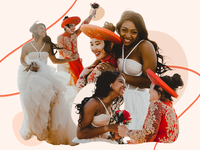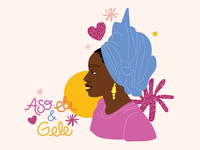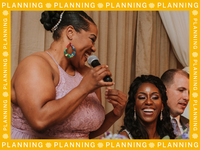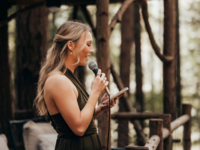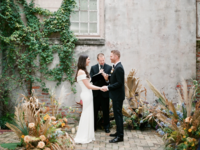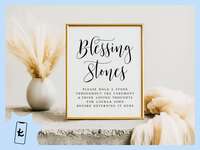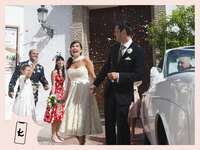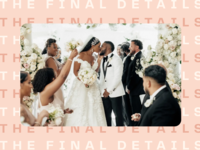14 South African Wedding Traditions and Customs to Know
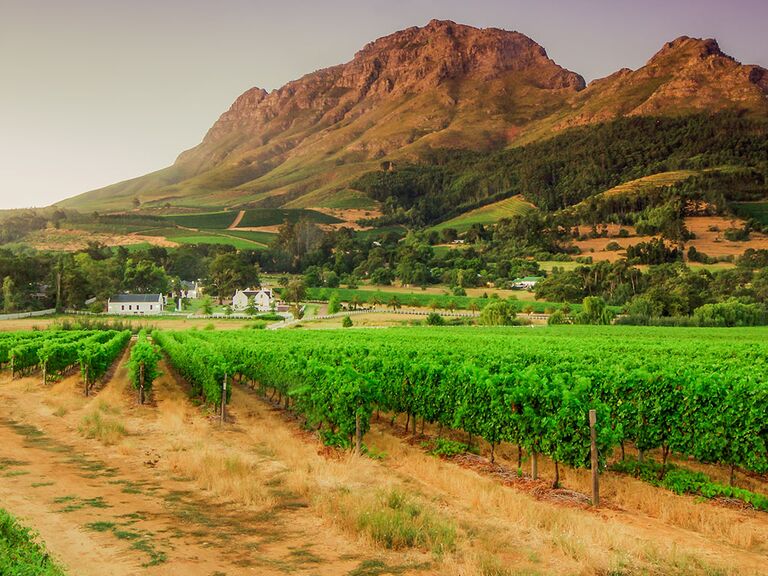

Traditional South African weddings rely heavily on customs and celebrations that have been passed on for generations and that are steeped in cultural heritage of the region. Understanding (and honoring) these traditions is important and can be done with relative ease once you know why they've been followed by couples and families for hundreds of years.
If you're planning a wedding and want to honor your South African heritage—or if you've been invited to a South African wedding and want to find out what you can expect—you might have questions about some of these traditions and how you can best honor them. We tracked down two wedding experts to get you a full breakdown of everything you'll need to know before you celebrate.
A Brief History of South African Wedding Traditions
South African weddings feature a lot of joyful celebrating, which expert Dustin Sitar, CEO of The Groom Club says can include everything from exchanges of Zulu beaded rings, a practice which originated with the Zulu people and symbolizes the commitment of two families to come together, to specialized dances. "The Kupe dance is also a common tradition in South African weddings, where guests gather in a circle and perform an elaborate dance of celebration." These traditions have carried on over the years in the hopes that they will help the two families merge into a stronger family unit while keeping bad luck and evil forces at bay.
South African Traditional Wedding Attire
When it comes to the clothing, John Anderson, Co-Founder and Executive Editor of Life Line Wedding says traditional South African wedding attire serves as a vibrant expression of culture and traditions, with bridesmaids normally donning colorful fabrics like silk or satin and accessorize with gold jewelry. "The attendants (ushers) can also choose from traditional outfits like dashikis paired with matching trousers or kaftans paired with matching slacks to highlight their cultural heritage while looking sharp."
South African Traditional Wedding Attire for the Couple
Anderson says some brides opt for a full-length white dress with intricate beading or lace detailing. "Along with the dress, traditional headwear is common—like an ivory veil with gold accents for the bride and black cap for the groom."
Other brides may lean more traditionally, and wear brightly colored fabrics known as Shweshwe, according to Sitar. When the brides don Shweshwe, he says the grooms will wear either a suit or traditional garments like boubous with accessories like beads and hats. Otherwise Anderson says you can expect to see grooms wearing three piece suits that are often tailored in bold colors such as navy blue, burgundy or black.
South African Traditional Wedding Attire for Guests
Those who have been invited to bear witness to the nuptials are asked to dress formally but may choose whatever color they prefer, Sitar says, adding that there's no specific hue required of guests.
South African Prewedding Traditions
The celebration starts long before the guests arrive at a traditional South African wedding ceremony. "Some unique pre-wedding traditions include Imbeleko, where offerings are made to ancestors for blessing, Isigqibo, which is an exchange of cows between families, and Dherela Amadoda where males from both sides convene for drinks at each other's respective homes or at a hall or public venue," explains Sitar.
The Umabo Ceremony
Another traditional Zulu blessing is the Umabo Ceremony, which Anderson says involves taking beer or other libations (typically Amazulu) from one home to another while singing songs to encourage joyousness between both families. "During this ceremony, gifts such as money or clothing can also be exchanged between families as well."
The Bride's Washing Ceremony
The bride's washing ceremony is seen as one last chance for the family to bond with the bride before she takes on her new role as wife in her husband's family home, according to Anderson. "The bride's mother or close female relatives will wash away all ill feelings with warm water, olive oil or herbs symbolizing cleansing and protection from any bad luck associated with the wedding."
Workout Session
Anderson says that a new tradition that is rising in popularity with people celebrating in South Africa is a combined workout session. "It could include anything from running together along the beachfront to going on bike rides around town together—it's whatever suits them best!"
Traditional Blessing
Before the ceremony even starts, families often come together days before the wedding celebration for a traditional blessing that typically includes prayer, singing and food shared amongst friends and family members who came out to show their support for the soon-to-be newlyweds. "This blessing strengthens bonds between families too when members put aside generational differences momentarily as they all wish well upon this union of two lives entwined in love," Anderson says.
Bridal Shower
Traditionally known by different names like "Hlamuza" or "bachelor party," Anderson says bridal showers are an important way to not only to celebrate but to bless the couple with a lifelong commitment through playing wedding games like "Fikamoya ka Nyama"—which he says is basically a guessing game.
South African Wedding Ceremony Traditions
Most South African weddings typically last around five hours but can range anywhere from three hours to three days, depending on specific traditions honored. Revelers can pack a lot of fun into those hours with several traditional ceremony practices.
Jumping Over the Broom
This is an old practice for couples who want to commit themselves fully towards their marriage journey together. "As per tradition, couples must jump over the broomstick hand-in-hand three times in order to signify their vows being sealed 'till death do them part,'" explains Anderson.
Ulwaluko and Umabo
Sitar says that this is a private ceremony in which the groom is celebrated for becoming a Xhosa initiate, which marks his transition from childhood into adulthood. There is a similar celebration held for young women who are marking their cultural transition into adulthood ahead of their wedding.
Umabo Wama Kwinkwinana
Sitar says the Umabo Wama Kwinkwinana is a celebration involving music and dancing. It honors other young men who have recently gone through their initiation process.
Bambatha
The Bambatha (also known as the Babbatha) is performed during the reception by married couples who bless the newlyweds. It's a beautiful way for those who have been married for a while to honor their own relationship as well as that of the happy couple.
South African Traditional Wedding Songs
Music plays a major role in the celebration of a marriage, but most of the songs are saved for the reception when the newlyweds can dance with their family and friends. Everyone is encouraged to shake a leg during with the newlyweds.


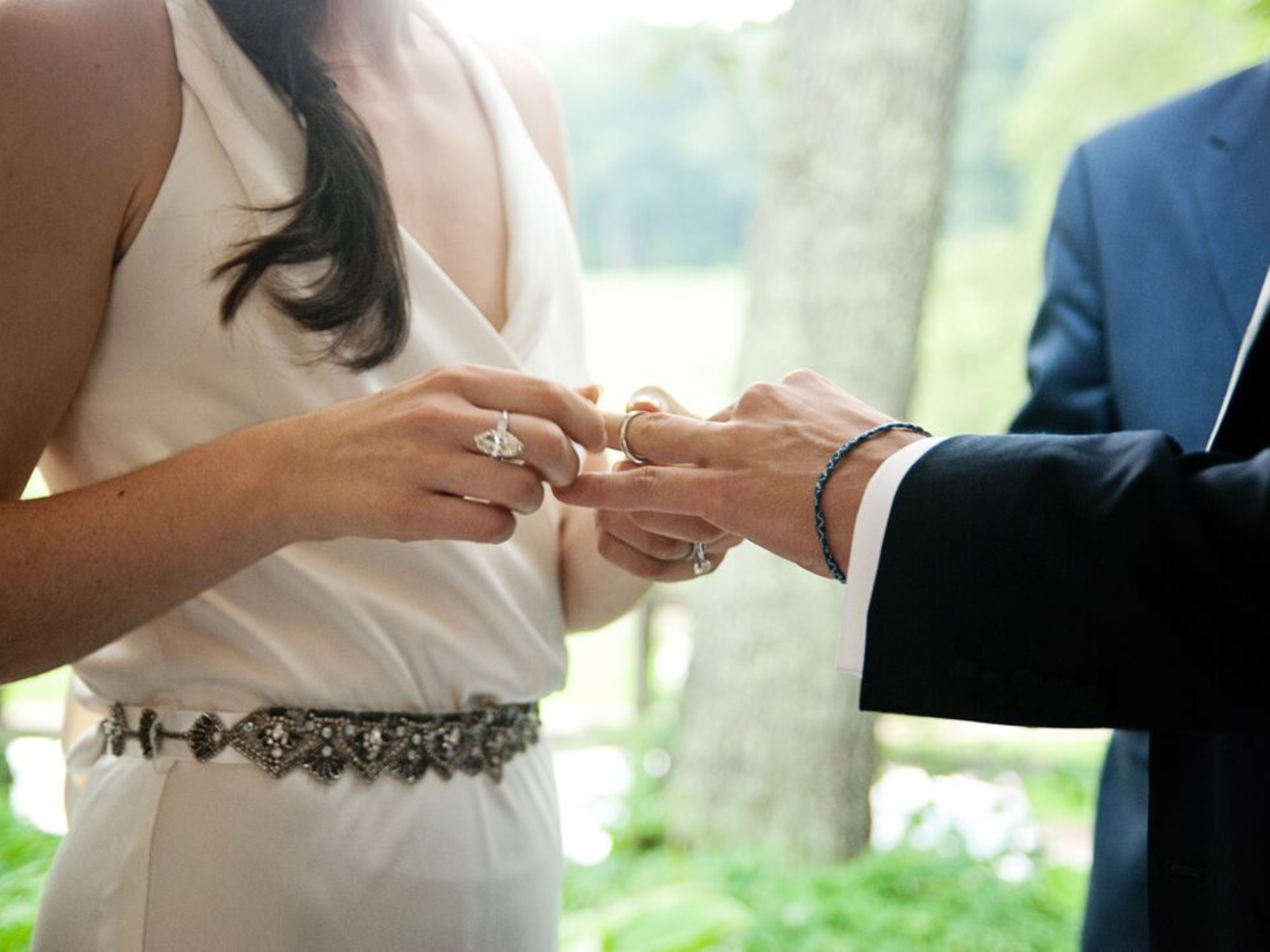
South African Wedding Reception Traditions
South African weddings are some of the most vibrant and colorful celebrations you can experience and are appreciated by a variety of guests—Anderson says couples typically invite an abundance of guests from both sides. "The bride's side usually includes her parents, siblings (if any), grandparents, godparents and close relatives. The groom's side would similarly consist of his parents, siblings (if any), grandparents and closer relatives/friends as well." Additionally, many couples also invite their closest friends to be part of the wedding party.
More traditional South African weddings may also include additional attendees such as stepsiblings or extended family members like aunts and uncles, but Anderson says modern weddings tend to stick with just immediate family members plus friends that hold special significance in the couple's life story together. "This tradition is done out of respect for everyone involved; it ensures that only those who have had a hand in developing the relationship over time are allowed entrance into one's inner circle on this special day!"
Gumboot Dancing
From traditional Zulu songs to modern South African hip hop, Anderson says guests at a South African wedding can expect an amazing mix of music and dance. "One of the mainstays of South Africa's wedding culture is gumboot dancing," he says, adding that this style originated in the gold mines during Apartheid, as workers were forbidden from talking and singing while working, so they invented their own language through foot stamping and stick beating—which eventually evolved into this unique form of rhythmic dance."
Marabi Music
This type of music became popular in the early 20th century. It's an urbanized version of jazz that Anderson says "fuses together styles from across Africa such as Calypso beats with strong impactful rhythms."
Zulu Dancing
As for that Zulu dancing Anderson mentioned earlier, he says it's a great thing to witness during any celebration. Dancers start off by gathering around in a circle before joining hands and beginning to move along in steady circles or lines chanting traditional spiritual songs for hours on end. "The bride-to-be will often have her friends join her during the ceremony but it's not uncommon for strangers or even unexpected guests to join in too."
Pantsula and Kwela Dancing
Less common is Pantsula dancing, which Anderson explains usually consists of men who hit their knees against each other while synchronizing eye movements and telling funny jokes between themselves as they go along. There's also Kwela, which Anderson says is known as Quick Step dancing. This involves lighthearted humor alongside intricate footwork. "These dances often accompany nighttime skateboarding competitions at parties or simphisas (weddings)."
South African Traditional Wedding Food, Drinks and Desserts
No party is complete without food and drinks (and of course, that all important wedding cake) and traditional South African receptions are no different. You can expect to see a lot of delicious meal options, including several different desserts.
South African Wedding Food
The food and cake at a South African wedding is always amazing, according to Anderson, and many weddings will feature traditional dishes such as sosaties (cubes of meat marinated in sweet-and-sour chili sauce, skewered onto strips of sour fig leaves), umphokoqo (a coarse mealie pap made from maize) and potjiekos ("pot food" featuring a variety of meats cooked slowly with vegetables). "The star dish for many South African weddings is bobotie, a delicious blend of ground beef mixed with onions, apricots and nuts before being baked with an egg custard. It's so popular that it even has its own festival each year in the city of Grahamstown!"
South African Wedding Desserts
You can't have a wedding without the cake, and Anderson said the sweet wedding day treat is commonly served alongside other dessert options, that include freshly baked cakes stuffed with caramel or fruit-flavors like banana or pineapple. "Traditional wedding cakes often feature multi-tiered layers adorned with delicate decorations like ivory roses or sugar lace," he continues. "You can also find cupcakes topped with cream cheese frosting which guests love to devour after dinner." Sitar says guests will also have the option to nosh on dried fruits covered in marzipan icing, yum.
South African Postwedding Traditions
The fun doesn't stop when the wedding day is over. "The day after or two days after the wedding is typically reserved for more partying at what's known as 'Wedzamashele,'" explains Anderson. "All friends and family gather again, but this time it's mainly focused on celebrating the newly married couple with games like stealing money from the bride and groom's pockets without them noticing."
Traditional South African weddings also typically feature a day of singing and dancing as well. "During this event, men will normally donate money to help create a fund for new home purchase or any other needs that may arise following marriage such as school fees for kids."
"Post wedding traditions vary depending on region however common ones include Umembeso, where female relatives give gifts such as clothing or jewelry as a congratulatory gesture towards newly married couples, as well as Dowry Presentations were senior male family members present cattle or other livestock in recognition of their union," adds Sitar.
Traditional South African Wedding Gifts
A major traditional gift at South African weddings is a blanket. "This blanket gift-giving custom dates back centuries ago when blankets were considered treasured items due to their ability to ward off cold weather during winter times and provide warmth in other circumstances," says Anderson, adding that these days it's customary for couples who are getting married to give out blankets either made of wool or cotton fabric adorned in different designs depending on what part of South Africa they come from so that guests have something long lasting reminding them of this special day for years to come.
During the reception, some couples will put out a "blessing box" for guests to put cards containing words of wisdom and financial contributions for the couple's new life together. "It's also typical for extended family members such as grandparents and godparents to give gifts during this time too; usually money so that they can help get things started off right in terms of wealth and security," Anderson says, adding that couples also receive more traditional gifts like towels, bedding sets, and kitchen appliances.
